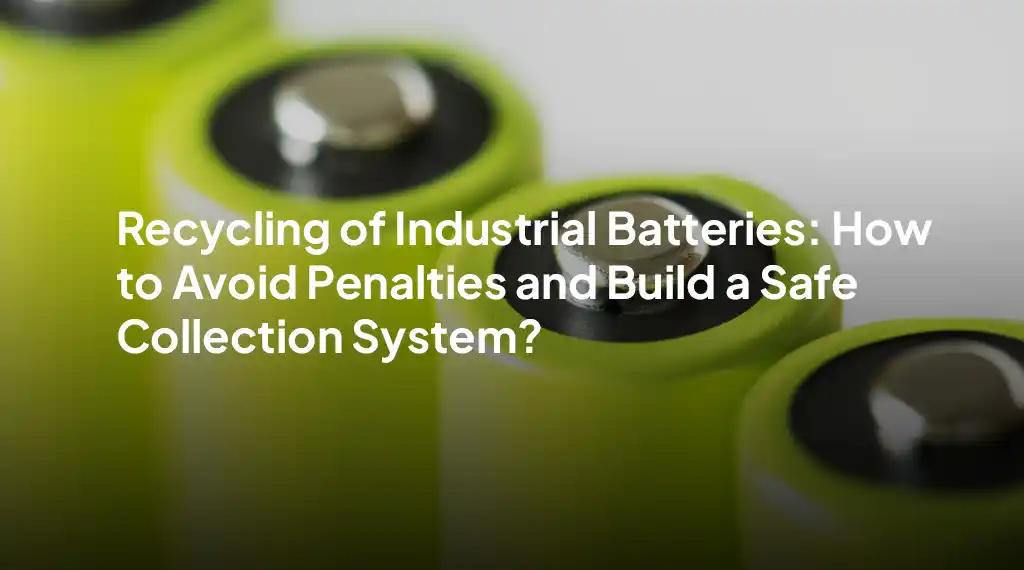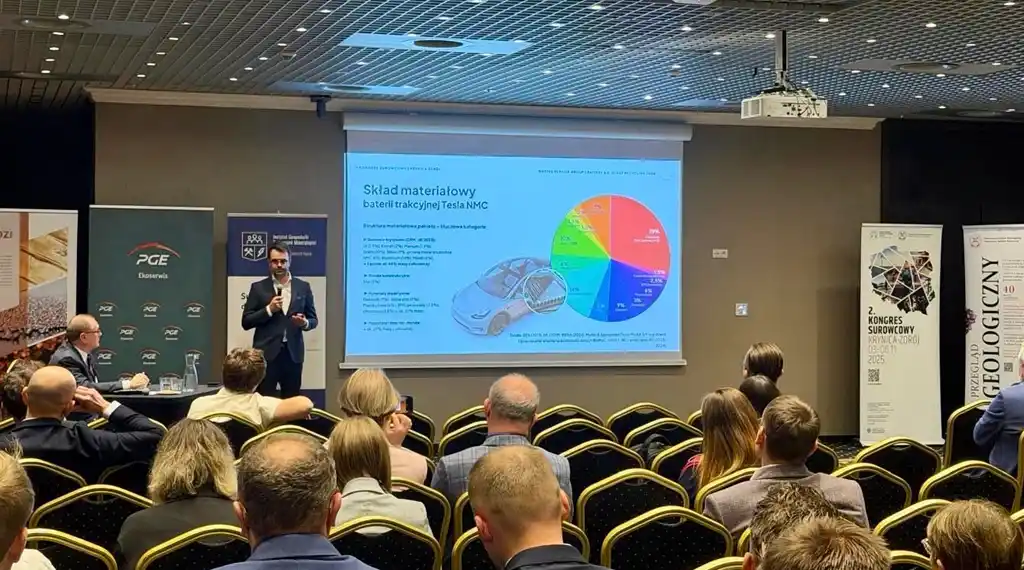
Recycling of industrial batteries is becoming an increasingly important element of the circular economy and compliance with the law. With the dynamic increase in the use of energy storage in enterprises, the amount of used batteries is increasing, the improper disposal of which can lead to serious legal, financial and environmental consequences. In this article, we discuss the most important aspects of recycling industrial batteries and practical tips on how to create safe and legal collection systems.
Industrial batteries are a key element in energy storage for many enterprises. Improper management of this waste can lead to serious environmental risks and financial penalties. Companies need to be aware of their legal obligations to avoid the consequences of failing to comply with battery disposal regulations.
Industrial batteries differ significantly from portable batteries in terms of capacity, size and risks associated with their use. Their improper storage or transportation can lead to chemical spills or fires. Knowing the specifics of each type of battery is essential for effective and safe waste management in the company.
Failure to comply with industrial battery recycling regulations can result in heavy fines and criminal liability. Control authorities are paying increasing attention to the proper handling of hazardous waste. In addition, the company is exposed to costs related to breakdowns or accidents resulting from improper storage.
Common mistakes include mixing different types of batteries, lack of proper labeling, and non-compliance with transportation rules. Incomplete documentation of the collection and recycling process is also often encountered. The elimination of these errors requires the implementation of a monitoring system and cooperation with a professional recycling partner.
New EU and national regulations introduce stricter requirements for the recycling of industrial batteries. The goal is to increase the recovery of critical raw materials and minimize risks to the environment. Companies need to update procedures to ensure legal compliance and effective waste management.
EU directives impose obligations on battery manufacturers and users, setting minimum recovery levels and safety standards. This includes, among other things, reporting obligations and the introduction of strict transport standards. The changes are aimed not only at protecting the environment, but also at promoting a circular economy.
The regulations specify the exact procedures for the collection, storage and transportation of industrial batteries. It is important, among other things, to use appropriate containers and markings to prevent accidents and chemical spills. Recycling partners such as Wastes Service, offer support in the correct organization of this process.
The new regulations introduce requirements for the recovery of key raw materials such as cobalt, lithium and nickel. Meeting these thresholds is important both from the point of view of law and economic efficiency. Thanks to this, valuable raw materials are returned to circulation, reducing the need for their extraction and the negative impact on the environment.
The safe recycling of industrial batteries requires proper planning and operational procedures. Hazards such as fires or electrolyte leaks are real and can have serious consequences. The correct organization of the process minimizes risks and facilitates compliance with legal requirements.
Damaged industrial batteries pose a high risk of ignition and leakage of hazardous chemicals. In such situations, a quick response and appropriate safety procedures are crucial. Staff training and the implementation of an emergency system reduce the possibility of accidents.
Batteries should be stored in dry, cool and well-ventilated areas. Labelling, segregation and the use of certified containers significantly increase safety. This minimizes the risk of accidents and facilitates subsequent transport to recycling points.
Working with an experienced partner such as Wastes Service, ensures efficient management of the process from collection to recycling. The professional company offers not only transportation, but also advice on regulations and safety. This is a key part of building an efficient and legal battery disposal system.
Regular audits and reporting are essential to ensure compliance with applicable regulations. Process documentation facilitates control and demonstration of proper waste management. Recycling companies play an important role in simplifying these procedures.
Audits allow to verify compliance of procedures with legal requirements and minimize the risk of penalties. They also help identify areas for improvement and increase the safety of working with industrial batteries. Constant process control is an element of professional waste management.
Companies are required to regularly report on the collection and recycling of batteries in the BDO system and report to the administrative authorities. Accurate reporting makes it easier to demonstrate compliance with the law and protects against financial sanctions. A recycling partner can assist in generating and uploading the required documents.
Professional companies such as Wastes Service, offer comprehensive audit, documentation and reporting support. Thanks to this, the company saves time and reduces the risk of formal errors. Working with an experienced partner allows you to have full control over the recycling process.
Choosing the right recycling partner is crucial for safety and compliance. Wastes Service offers support at every stage, from logistics to consulting, to reporting. Cooperation with the company allows us to build a safe and effective collection system for industrial batteries.
The company helps with the organization of collection points, transportation and storage of batteries. It offers advice on regulations and safety procedures. This enables businesses to manage waste safely and minimise legal risks.
Wastes Service provides a comprehensive service, from the collection of batteries, through storage, to the preparation of BDO documentation. The company enables the implementation of an efficient recycling system that meets the requirements of the Battery Law 2025. The collaboration allows companies to focus on the business, leaving recycling issues to professionals.
In conclusion, it should be said that the safe and legal recycling of industrial batteries is not only a legal obligation, but also an element of a responsible circular economy. Proper organization of collection, storage and cooperation with an experienced partner such as Wastes Service minimizes risks and supports the development of green energy. As a result, companies can efficiently recover raw materials from batteries, avoid penalties and build a sustainable system of sustainable waste management.

16/12/25
Wastes Service Group's participation in the ELEC Expo in Casablanca includes discussions on critical raw materials, battery recycling and stable supply chains for energy and electromobility.


16/12/25
We are pleased to announce that Wastes Service Group participates in the economic mission to Morocco, organized by the Polish Investment and Trade Agency (PAIH).


15/11/25
Wastes Service Group participates in Batteries Event 2025 in Lyon. Filip Gabryelewicz will present our new Battery & e-Scrap Recycling Park and present a practical approach to Urban Mining.
